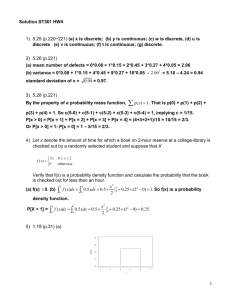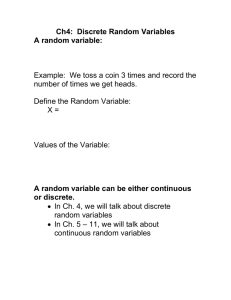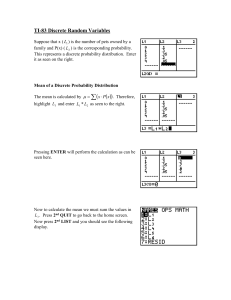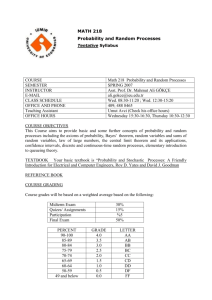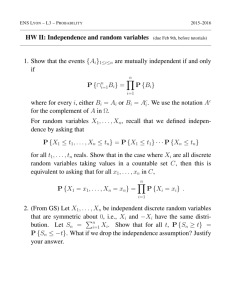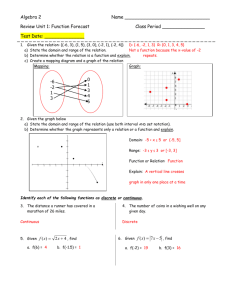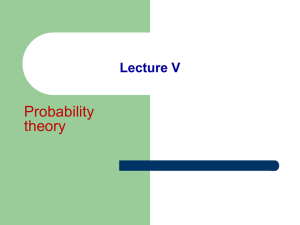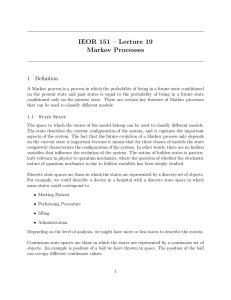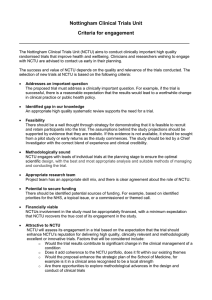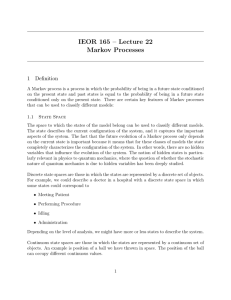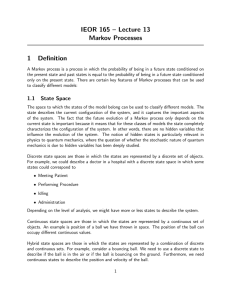Document
advertisement
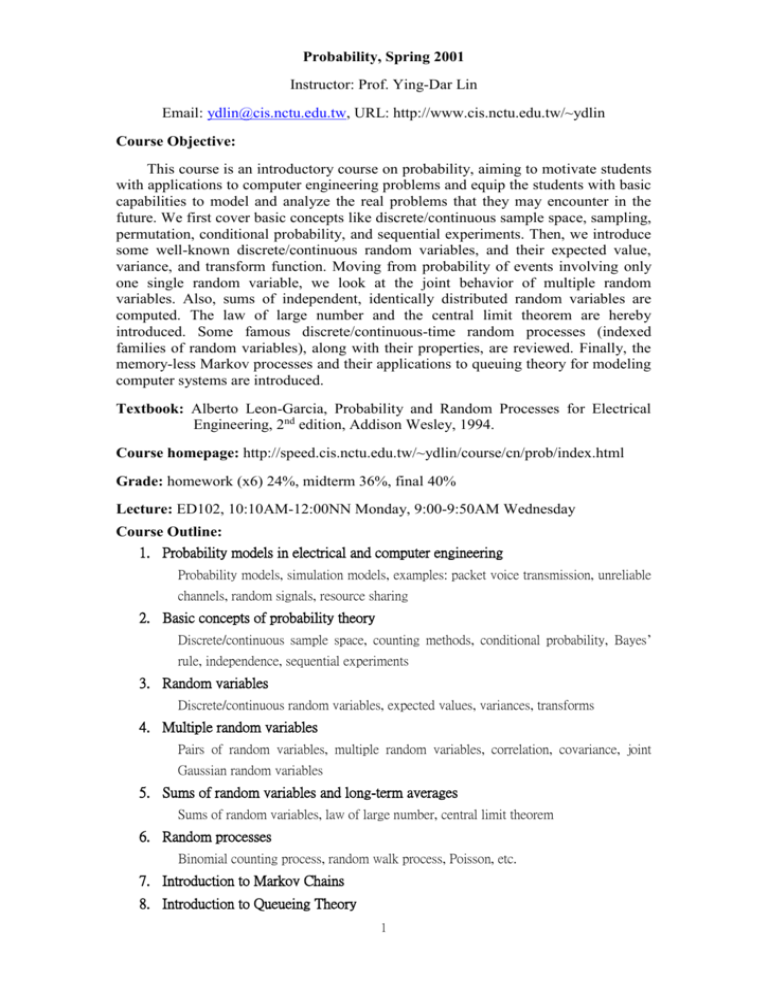
Probability, Spring 2001 Instructor: Prof. Ying-Dar Lin Email: ydlin@cis.nctu.edu.tw, URL: http://www.cis.nctu.edu.tw/~ydlin Course Objective: This course is an introductory course on probability, aiming to motivate students with applications to computer engineering problems and equip the students with basic capabilities to model and analyze the real problems that they may encounter in the future. We first cover basic concepts like discrete/continuous sample space, sampling, permutation, conditional probability, and sequential experiments. Then, we introduce some well-known discrete/continuous random variables, and their expected value, variance, and transform function. Moving from probability of events involving only one single random variable, we look at the joint behavior of multiple random variables. Also, sums of independent, identically distributed random variables are computed. The law of large number and the central limit theorem are hereby introduced. Some famous discrete/continuous-time random processes (indexed families of random variables), along with their properties, are reviewed. Finally, the memory-less Markov processes and their applications to queuing theory for modeling computer systems are introduced. Textbook: Alberto Leon-Garcia, Probability and Random Processes for Electrical Engineering, 2nd edition, Addison Wesley, 1994. Course homepage: http://speed.cis.nctu.edu.tw/~ydlin/course/cn/prob/index.html Grade: homework (x6) 24%, midterm 36%, final 40% Lecture: ED102, 10:10AM-12:00NN Monday, 9:00-9:50AM Wednesday Course Outline: 1. Probability models in electrical and computer engineering Probability models, simulation models, examples: packet voice transmission, unreliable channels, random signals, resource sharing 2. Basic concepts of probability theory Discrete/continuous sample space, counting methods, conditional probability, Bayes’ rule, independence, sequential experiments 3. Random variables Discrete/continuous random variables, expected values, variances, transforms 4. Multiple random variables Pairs of random variables, multiple random variables, correlation, covariance, joint Gaussian random variables 5. Sums of random variables and long-term averages Sums of random variables, law of large number, central limit theorem 6. Random processes Binomial counting process, random walk process, Poisson, etc. 7. Introduction to Markov Chains 8. Introduction to Queueing Theory 1
